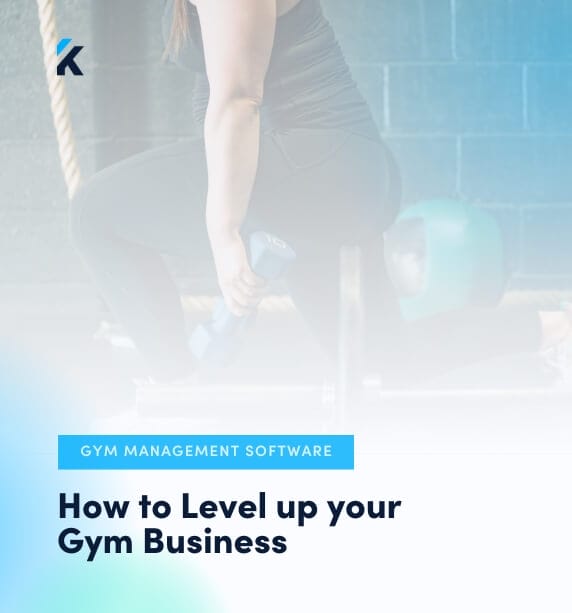…with a Gen Z clientele
What’s up Gym World?
Gen Z (those born between 1997-2012) is the latest generation to enter the workforce.
The Washington Post says bosses can’t crack their lingo, so I asked a Gen Z coworker for a primer:
- Slay = you did something well
- Cap vs no cap = a lie vs something that’s true
- Touch grass = get in touch with reality
- Bussin’ = describes something awesome
- Frfr = for-real for-real
- Sus = giving the impression that something is questionable or dishonest; suspicious
The Gen Z version of Don Draper would pitch ideas like this:

That said, more Gen Z’s are making adult money and want to spend it on services that improve their health and well-being.
While it doesn’t sound like a big deal, here’s why this should be on every gym owner’s radar:
Few gyms cater to Gen Z
Not only does Gen Z influence many of the latest trends in fitness, but they also go to the gym more than the general population.
Most gyms target 35-45-year-olds; elder Gen Zs will be in that demographic in the next 10 years. So if you want to future-proof your business, it pays to understand what they like and want.
Above anything else, Gen Z looks for community and connectedness. 73% of them report feeling isolated. A columnist from the NY Times recently shared how more people are using group fitness to fix that:
And while Gen Z is still a decade away from their prime buying years, there’s an opportunity for coaching gyms to sell to them now. Few gyms serve this demographic, so it’s no surprise that 91% workout at big-box gyms.
Luckily we found someone who is slaying Gen Z gym ownership. Let’s talk about Dane McCarthy.
He founded The Athletic Clubs, a series of unique training gyms in NYC that cater to a younger clientele.
His first location—West Village Athletics—runs out of a 1,200 sq ft basement, has 400 members, and is doing $80k/mo.
So what makes Dane’s approach attractive?
Well, imagine a gym that doesn’t offer flexible scheduling, frequently fires members, and has a strict dress code.
Unconventional? Yes. But these rules are drawing younger crowds into Dane’s gyms.
There’s more beneath the surface, so let’s get into it:
If you train at The Athletic Club, you train in a squad
Squads recreate the college athlete experience. You train with the same 20 people at the same time 2x a week.
Each squad is named after Australian beaches (Dane is Australian). This way, you’re part of a team with shared goals, interests, and fitness levels.

Like a college sports team—if you don’t show up, you’re kicked out and replaced by someone on the waitlist.
💡 Whereas most small gyms offer flexible and lenient scheduling, squad training prides itself on routine and consistency. This is also great for packing a lot of members into a small space.
You hang out with your squad
Like any college team, squads socialize and meet outside the gym. Because they spend a lot of time together, they build strong connections.

8.5 million people live in NYC, yet many are lonely and miserable.

Studies show that working out with friends improves mental health and well-being. So while training on the same days at the same times with the same people is restrictive, there are huge social benefits.
User-Generated Content on steroids
The rise of influencers on social media is changing how consumers make decisions. Gen Z often uses TikTok to discover new places and things.
That’s how Dane drives a lot of business. Because members create and share their own content, younger crowds find it more relatable and interesting.
💡 NYC influencers have way more reach than suburban moms. West Village Athletic has over 382M impressions on TikTok.
This unpaid video has over 100,000 views:
@steve__cole I love everything about NYC
♬ Puff – Hany Beats
Everyone follows a dress code
Scroll through the West Village Athletic Instagram page and you’ll notice that everyone wears black.


Dane says it’s because members don’t have to buy Lululemon sets every week, so it removes a layer of comparison.
I think it’s because:
- it’s cool, and no one else does it,
- it attracts attention and interest to the gym, &
- it builds the gym’s brand
Tl;dr: takeaway for gym owners
Looking ahead, there’s a great opportunity for fitness entrepreneurs to capitalize on Gen Z.
They want more than just a place to workout; they look for community—something you all pride yourselves on delivering to your members.
However, surveys show that most coaching gyms do not resonate with Gen Z.
Fitness to them is a holistic experience, and they’re not interested in diet culture like previous generations. They want to be happy and healthy.
Dane gets it. He figured out a way to take existing concepts in fitness and added a unique spin to better connect with the market, and it’s working well for him.
To learn more, watch or listen to the latest Gym World.
Stay slaying,
j






